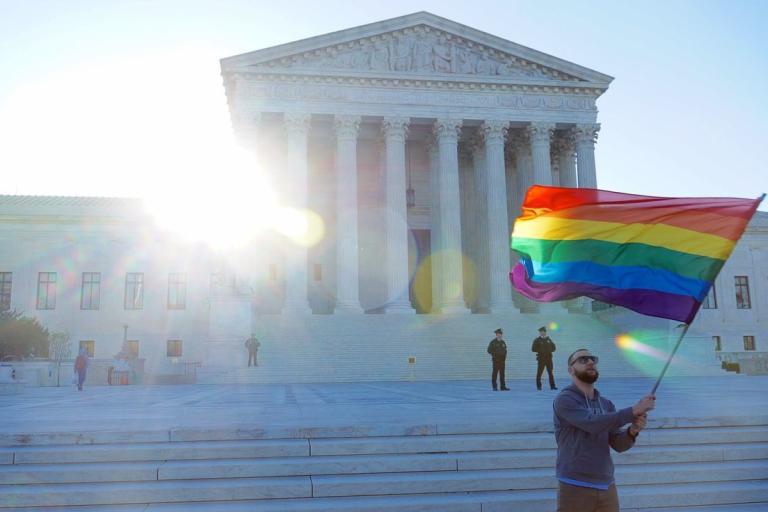On March 31, 2021, The Marijuana Regulation & Taxation Act (MRTA) was signed into law, legalizing the use of recreational marijuana for persons 21 years of age and older [1]. This decision made New York the 16th state in the U.S. to legalize marijuana for recreational use. Passing MRTA led to an amendment in § 201-d of New York’s Labor Law, prohibiting employers from discriminating against an employee’s legal use of marijuana. Legal use is defined as follows: the user is above the age of 21 and the marijuana is consumed outside of the workplace, outside of work hours, and without the use of the employer’s equipment or property [2]. It is unlawful for employers to refuse to hire or discriminate against an employee’s compensation, promotion, or other privileges of employment because of their legal use of marijuana [3].
Under N. Y. Lab. Law § 201-d, it is also unlawful for an employer to test either prospective or current employees for marijuana [4]. However, there are limited circumstances that overrule the new amendment and allow employers to test or take disciplinary action towards employees that use marijuana [5]. Employers permitted to drug test are required to notify their employees of such exceptions [6].
Employers retain the right to prohibit possession of marijuana at the workplace, prohibit the use of marijuana during work hours, including during paid/unpaid breaks or meal breaks, and prohibit the use of marijuana within a company vehicle during and after work hours [7].
Exceptions
Persons who exhibit visible symptoms of marijuana impairment while working:
An employer can act against an employee for using marijuana while working if that employee shows specific symptoms of impairment that either decrease or lessen their work performance or if that employee exhibits visible symptoms of impairment that disrupt an employer’s ability to provide a safe and healthy workplace as required by state and federal safety laws [8]. Such symptoms include objectively observable signs of impairment, such as worsened job performance. Neither a positive test for marijuana nor the odor of marijuana on the employee’s person can be used as the basis for an employer’s accusation that an employee was impaired while working [9].
Persons classified as safety-sensitive transportation employees:
The Department of Transportation (DOT) Office of Drug and Alcohol Policy and Compliance clarifying that “state initiatives will have no bearing on the Department of Transportation’s regulated drug testing program. The Department of Transportation’s Drug and Alcohol Testing Regulation – 49 CFR Part 40 – does not authorize the use of Schedule I drugs, including marijuana, for any reason” [10].
Under the Department of Transportation’s Drug and Alcohol Testing Regulation – 49 CFR Part 40 - individuals classified as safety-sensitive transportation employees are still subject to random drug testing [11] prohibiting marijuana consumption whether they are on-duty or off-duty. A list of all safety-sensitive transportation employees covered under DOT testing regulation 49 CFR Part 40 can be found below [12].
Persons working under a federal contract:
Even though New York State has legalized its consumption, under federal law, marijuana is still an illegal, Schedule 1 controlled substance [13]. Employers who have been awarded a federal grant of any amount or a federal contract of $100,000 or more must require all employees directly engaged in the performance of work pursuant to the provisions of the contract or grant to comply with the Drug-Free Workplace Act of 1988 [14].
Consuming marijuana as an employee working on a project funded by a federal contract is a violation of federal law and could result in the loss of the federal contract [15]. An employee’s violation of federal law gives the employer a legal right to take disciplinary action on the employee.
Although there are exceptions, it is unlawful for employers to discriminate against legal marijuana users on the basis that marijuana remains illegal on a federal level.
If you believe you have been unlawfully discriminated against for using marijuana or asked to undergo testing for marijuana or THC in violation of the law, click here or call us at (212) 943-9080 to schedule a free consultation.
[1] N. Y. Lab. Law § 222.05
[2] N. Y. Lab. Law § 201-d (2)(c)
[4] NY Department of Labor, Adult Use Cannabis and the Workplace, New York Labor Law 201-d, pp 3. (October 2021) Adult Use Cannabis and the Workplace, New York Labor Law 201-d (ny.gov)
[5] N. Y. Lab. Law § 201-d (4-a)
[6] 41 U.S.C § 701-a (1)(A)
[7] NY Department of Labor, Adult Use Cannabis and the Workplace, New York Labor Law 201-d, pp 2. (October 2021) Adult Use Cannabis and the Workplace, New York Labor Law 201-d (ny.gov)
[8] N. Y. Lab. Law § 201-d (4-a) (ii)
[9] NY Department of Labor, Adult Use Cannabis and the Workplace, New York Labor Law 201-d, pp 2. (October 2021) Adult Use Cannabis and the Workplace, New York Labor Law 201-d (ny.gov)
[10] Swart, J. L. (2012, December 3). DOT OFFICE OF DRUG AND ALCOHOL POLICY AND COMPLIANCE NOTICE.odapc-notice-recreational-mj.pdf (transportation.gov)
[11] 49 CFR § 199.105 (c)(1)
[12] Employees Covered Under DOT Testing Regulation 49 CFR Part 40 | US Department of Transportation
[13] Drug Enforcement Administration, Drugs of Abuse: 2022 Edition, a DEA Resource Guide, pp 92. December 2022) Drugs of Abuse (dea.gov)
[14] 41 U.S.C. § 701-a (1). As defined in section 403(11) of this title: The term "simplified acquisition threshold" means $100,000.


